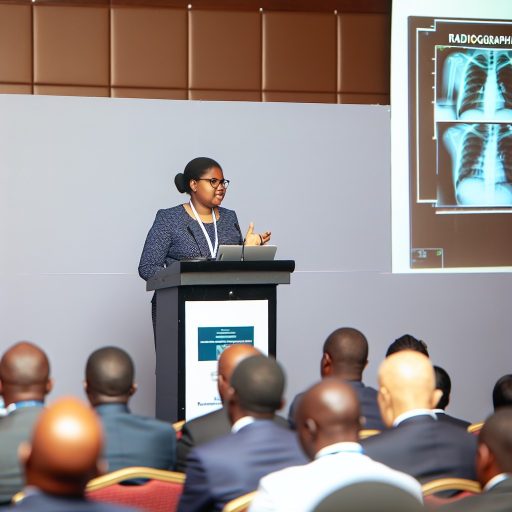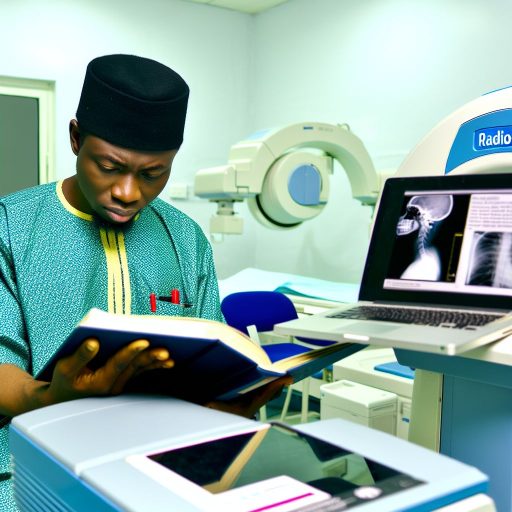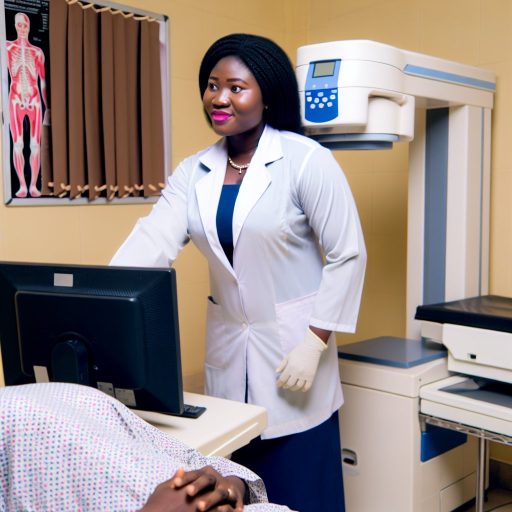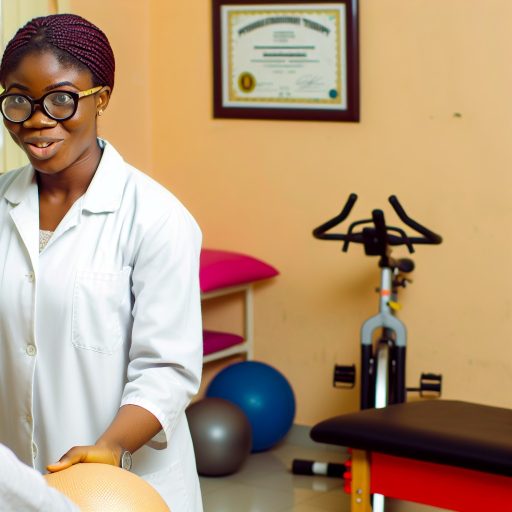Introduction:
Beyond the vibrant culture and bustling streets of Nigeria lies a significant health concern – the prevalence of eye conditions.
Regular eye exams play a crucial role in early detection and prevention of these issues.
With the increasing cases of vision problems in Nigeria, it is essential for individuals to prioritize their eye health.
Regular check-ups can help diagnose conditions such as glaucoma, cataracts, and refractive errors in their early stages.
Early detection through routine eye exams can prevent further deterioration of vision and improve overall eye health.
Nigerians must understand the importance of proactive eye care to maintain good eyesight for a lifetime.
Common eye conditions in Nigeria:
Discuss prevalent eye diseases such as cataracts, glaucoma, and refractive errors in Nigeria.
Highlight the impact of these conditions on the population’s overall eye health and quality of life.
Cataracts are a common eye condition in Nigeria, affecting a large number of the population.
It is a clouding of the natural lens of the eye, leading to blurry vision and eventually blindness if left untreated.
Glaucoma, on the other hand, is a group of eye conditions that damage the optic nerve, often due to increased pressure in the eye.
This can result in irreversible vision loss if not diagnosed and managed early.
Refractive errors, such as myopia (nearsightedness) and hyperopia (farsightedness), are also prevalent in Nigeria.
These conditions can greatly impact individuals’ ability to see clearly and perform daily tasks.
The lack of access to vision correction tools like glasses or contact lenses exacerbates the problem.
As a result, it leads to decreased productivity and quality of life for many Nigerians.
The impact of these eye conditions goes beyond just poor vision.
It affects people’s ability to work, go to school, and engage in daily activities.
Children with uncorrected refractive errors may struggle in school.
Meanwhile, adults may face challenges at work due to their impaired vision.
The burden of these conditions is not just individual but also societal.
It puts a strain on the healthcare system and economy.
Regular eye exams are crucial in detecting and managing these common eye conditions in Nigeria.
By getting routine check-ups, individuals can catch these issues early before they progress to more advanced stages.
Early intervention can help prevent irreversible vision loss and improve the overall quality of life for those affected.
Additionally, access to affordable and quality eye care services is essential in addressing the prevalence of eye diseases in Nigeria.
This includes not only eye exams but also treatments like cataract surgery and glaucoma management.
Providing education on eye health and promoting regular check-ups can help raise awareness.
It can also reduce the burden of these conditions on the population.
The importance of regular eye exams for Nigerians cannot be overstated.
By addressing common eye conditions like cataracts, glaucoma, and refractive errors through early detection and proper management, individuals can maintain good eye health.
This proactive approach also improves their quality of life.
Investing in eye care services and promoting preventive measures is key to reducing the impact of these conditions on the population.
Lack of awareness and access to eye care:
When it comes to eye care services in Nigeria, there is a significant gap, especially in rural areas.
The limited access to these services poses a major challenge for Nigerians in maintaining good eye health.
Limited access to eye care services in Nigeria:
- Many rural areas lack proper eye care facilities and trained professionals, making it difficult for residents to get the necessary eye care they need.
- The cost of eye care services in urban areas can also be prohibitive for many Nigerians, further limiting their access to regular eye exams.
- Due to the lack of infrastructure and resources, some Nigerians have to travel long distances to reach the nearest eye care facility, which can be time-consuming and costly.
- In remote villages, the shortage of eye care professionals such as optometrists and ophthalmologists further exacerbates the problem of access to eye care services.
Lack of awareness among Nigerians regarding the importance of regular eye exams:
- There is a general lack of awareness among Nigerians about the importance of regular eye exams in maintaining good eye health and preventing vision problems.
- Many people only seek eye care services when they already have a vision problem, rather than proactively getting regular check-ups to prevent issues from arising.
- Cultural beliefs and myths surrounding eye health in Nigeria can also contribute to the lack of awareness about the need for regular eye exams and preventive measures.
- The overall prioritization of eye care in the healthcare system is low, leading to a lack of educational campaigns to raise awareness about the importance of eye exams.
Addressing these issues of limited access to eye care services and lack of awareness among Nigerians is crucial to improving eye health outcomes in the country.
By increasing access to eye care facilities, training more eye care professionals, and educating the public about the importance of regular eye exams, Nigeria can take significant steps towards preventing avoidable blindness and vision impairments.
Explore Further: Innovative Teaching Methods in Nigerian Medical Schools
Regular eye exams are crucial for everyone, including Nigerians, to maintain good eye health and prevent vision loss.
Let’s explore the benefits of routine eye exams:
Transform Your Career with Expert Guidance
Get personalized mentorship consulting that’s tailored to your unique path. Our expert advice is actionable and exclusive.
Get StartedEarly Detection of Eye Diseases and Vision Issues
One of the key advantages of regular eye exams is the early detection of eye diseases such as glaucoma, cataracts, and macular degeneration.
These conditions often have no noticeable symptoms in the early stages, making routine exams essential for early diagnosis and treatment.
Additionally, vision issues such as nearsightedness, farsightedness, and astigmatism can also be identified during an eye exam.
By detecting these issues early, corrective measures can be taken to prevent further deterioration of vision.
Maintaining Good Eye Health
Regular eye exams are essential for maintaining overall eye health.
During an exam, an eye care professional can assess the health of the eye structures, including the cornea, retina, and optic nerve.
Any abnormalities or signs of disease can be detected and addressed promptly.
Moreover, eye exams can help monitor the effects of chronic conditions such as diabetes and hypertension on the eyes.
These conditions can lead to diabetic retinopathy, hypertensive retinopathy, and other eye complications if left unchecked.
Routine exams enable early intervention to prevent vision loss.
Preventing Vision Loss
By identifying eye diseases and vision issues early, regular eye exams play a crucial role in preventing vision loss.
Timely treatment can slow or halt the progression of conditions like glaucoma, cataracts, and diabetic retinopathy, preserving vision and quality of life.
Furthermore, wearing corrective lenses or undergoing vision therapy as recommended during an eye exam can help prevent further deterioration of vision.
Addressing refractive errors promptly can improve visual acuity and reduce the risk of complications that may lead to permanent vision loss.
Prioritize Regular Eye Exams
The benefits of regular eye exams cannot be overstated.
For Nigerians and individuals worldwide, prioritizing eye health through routine exams is essential for early detection of eye diseases, maintaining good eye health, and preventing vision loss.
Schedule an eye exam today to safeguard your vision for the future.
Discover More: Parasite Control Programs in Nigeria
Importance for Different Age Groups:
Children:
Regular eye exams for children are crucial as many vision problems can go undetected without proper screening.
Early detection of vision issues in children can prevent academic and developmental delays.
Children may not always vocalize vision problems, so routine eye exams are essential for proactive care.
Uncorrected vision problems in children can lead to permanent vision loss if left untreated.
Timely treatment of conditions like amblyopia or strabismus can prevent long-term vision impairment.
Adults:
Adults in Nigeria should prioritize regular eye exams to catch common vision problems like refractive errors.
Timely detection and correction of refractive errors can improve quality of life and prevent eye strain.
Eye exams for adults also screen for conditions like glaucoma, cataracts, and macular degeneration.
Early diagnosis of these age-related eye diseases can help preserve vision and prevent further complications.
Regular eye exams are especially important for adults with diabetes, hypertension, or a family history of eye disease.
The Elderly:
Eye exams for the elderly are crucial for detecting age-related eye diseases, which become more common with age.
Conditions like age-related macular degeneration can be managed more effectively with early detection.
Elderly individuals are at higher risk for cataracts, glaucoma, and diabetic retinopathy, making regular exams essential.
Vision changes associated with aging can impact daily activities, so early intervention is key.
Regular eye exams can also detect signs of systemic diseases like hypertension or diabetes that manifest in the eyes.
Delve into the Subject: Tips for Children’s Dental Care in Nigeria
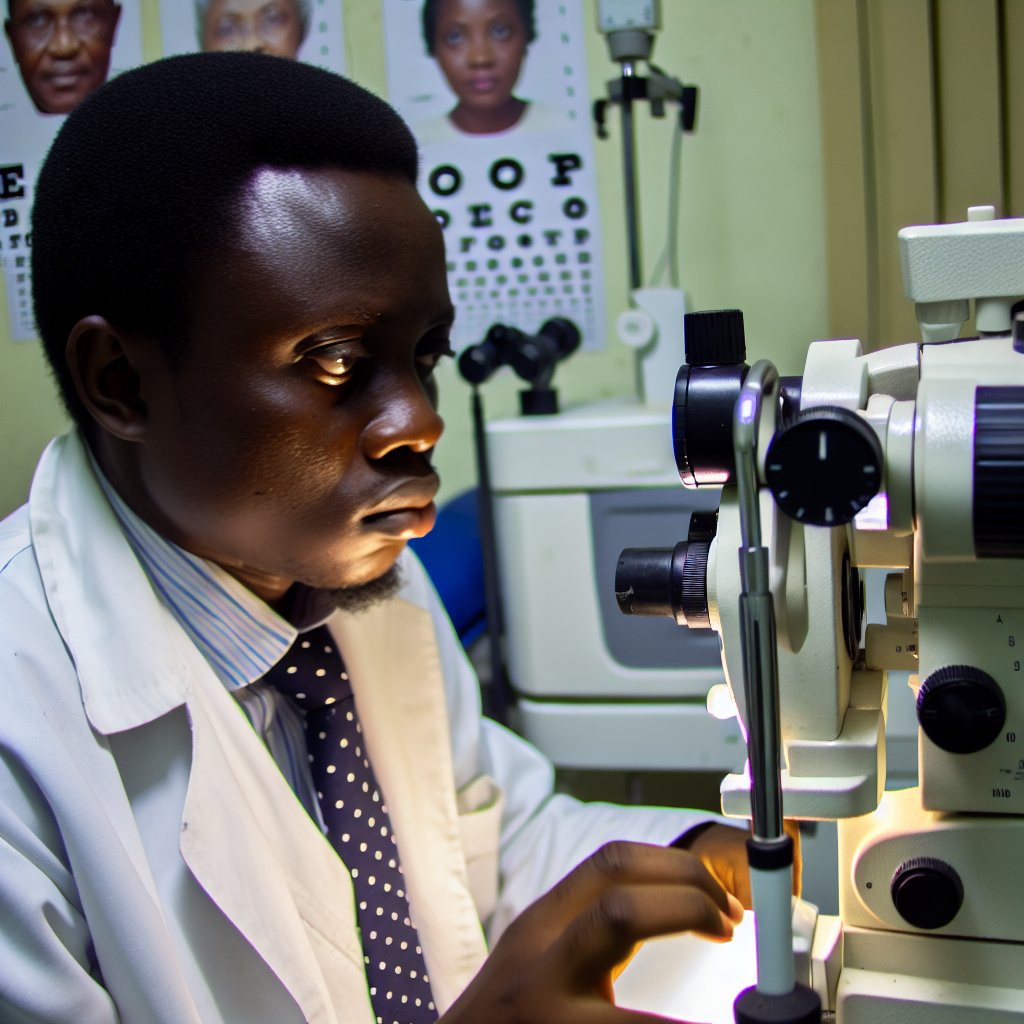
Promoting Eye Health and Prevention:
Remember to wear protective eyewear when participating in activities that could harm your eyes.
Adopting a healthy lifestyle, including a balanced diet rich in vitamins and minerals, can benefit your eye health.
Regular exercise can improve blood circulation to the eyes, reducing the risk of eye diseases.
Avoid smoking, as it can increase the likelihood of developing cataracts and other eye conditions.
Protect your eyes from harsh UV rays by wearing sunglasses when outdoors, even on cloudy days.
Encourage Regular Eye Exams:
Regular eye exams are essential to detect early signs of eye disease and vision problems.
Adults should have a comprehensive eye exam at least once every two years, even if they have no symptoms.
Children should have their eyes checked regularly to ensure proper vision development.
People with diabetes, hypertension, or a family history of eye disease should have more frequent eye exams.
Early detection of eye conditions can prevent further damage and preserve vision for the long term.
You Might Also Like: Physiotherapy for Post-Surgery Recovery in Nigeria
Overcoming barriers to eye care:
When it comes to improving access to eye care services in Nigeria, there are several strategies that can be implemented to overcome the barriers that exist.
- Increasing awareness through outreach programs: One way to improve access to eye care services in Nigeria is by conducting outreach programs that educate the public about the importance of regular eye exams. These programs can help dispel myths and misconceptions about eye health and encourage people to seek out care.
- Engaging the role of government: The government plays a crucial role in addressing barriers to eye care. By investing in eye care infrastructure, training healthcare providers, and implementing policies that prioritize eye health, the government can make significant strides in improving access to eye care services.
- Collaborating with healthcare providers: Healthcare providers, including doctors, nurses, and optometrists, play a key role in delivering eye care services to the Nigerian population. By working together with these providers, organizations can ensure that more people have access to quality eye care.
- Partnering with NGOs: Non-governmental organizations (NGOs) also play a vital role in addressing barriers to regular eye exams in Nigeria. By partnering with NGOs that specialize in eye care, organizations can leverage their expertise and resources to reach underserved communities and provide much-needed services.
- Implementing community-based programs: Community-based programs can also be effective in improving access to eye care services. By setting up eye clinics in local communities, training community health workers to conduct screenings, and providing affordable eye care services, organizations can ensure that more Nigerians have access to the care they need.
- Advocating for policy change: Advocacy efforts can also help address barriers to regular eye exams in Nigeria. By engaging policymakers, raising awareness about the importance of eye health, and pushing for policy changes that prioritize eye care, organizations can create lasting change that benefits the entire population.
Importance of Regular Eye Exams for Nigerians
Regular eye exams are crucial for Nigerians to maintain good vision.
These exams help detect eye diseases early and improve overall eye health.
By prioritizing eye health, individuals can prevent blindness.
They can also avoid other serious eye conditions with timely care.
Scheduling regular eye exams with qualified eye care professionals is essential.
Do not wait until you experience vision problems.
Make your eye health a priority today!
Additional Resources
Parents’ reasons for nonadherence to referral to follow-up eye care …
Parents’ reasons for nonadherence to referral to follow-up eye care …

